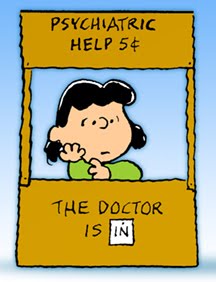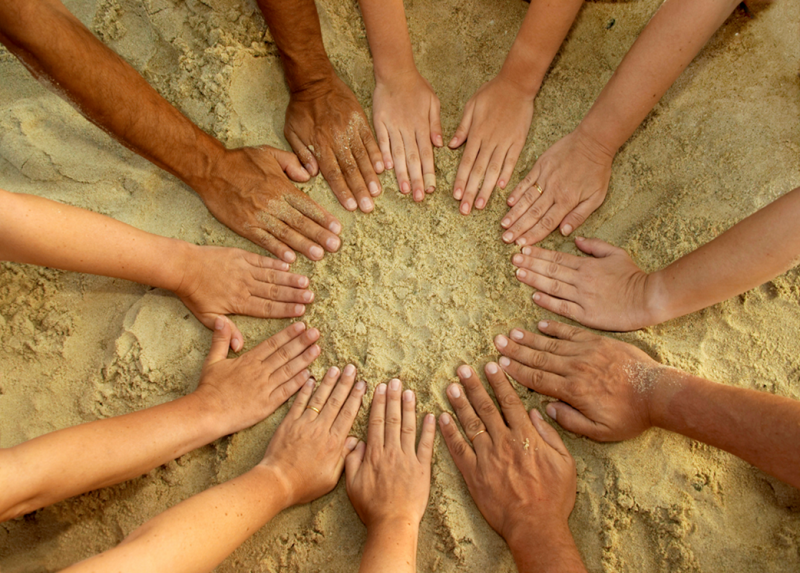by Mindy Fried | Feb 1, 2015 | aging, health, Manny Fried, parenting, stress, support, value of caregiving work
My father’s hair had grown wild and unruly, and I told him, “You look like the mad Professor”, hoping for a smile from this working class guy from Buffalo turned local revolutionary hero. His strands of thin, white hair lingered in mid-air with nowhere to go, suspended in time and place, as his body recuperated from hip surgery that was probably a bad idea at age 94. Instead of feeling hopeful, he was despairing, wondering whether he had made the right decision, all the while trying to convince himself that he had. I couldn’t help but join him in this sentiment. I tried to be positive, reminding him that you can’t gauge improvement on a daily basis. It would take weeks, maybe months. But at his age, that’s playing with fire. Why the hell he insisted on having the surgery was beyond me. And why the hell his doctor didn’t say no just made me mad.
![]()
Over the years, I had become his make-shift hairdresser, a role that I relished. It was a way to connect with him in a contained window with a dollop of distance. For my atheist father, getting a haircut from me was a little like going to church, a solemn occasion filled with contemplation and calm. For me? I felt purposeful, able to help this man who had been such a stalwart support for so many years. The truth was that there was very little actual cutting of hair involved, but the ritual called for a slow pace and gentle hands. Using my scissors gingerly, I always started on the sides where the hairs were most prominent. The top hairs were next; they were sparse and the task of cutting was only a prelude to what would come later. I lingered at the back of his head because he knew it was almost over. And for the finale, I finished the job with an electronic razor to smooth it all out.
![]()
As I look back on this simple act of love, I relish in the peace I was able to bring to him. A firebrand in his day, he was losing steam, at times wondering if life was worth living. That was the hardest part for me. But this pure connection momentarily stripped away his cares and mine, and allowed us to be in the room together. When I stepped back to assess my work, I would always find wild hairs I missed. There is no perfection here. Only a work in progress. In the end, my father was quietly grateful. Not a man given to ‘thank you’s’, even in the best of times.
by Mindy Fried | Oct 20, 2014 | community, connections with people, family, JP Porchfest, JP Reads, Lantern Parade, resiliency, stress, support, Wake Up the Earth, well-being
For the past six years, sometime in early fall, I don an apron, which I place on top of a (borrowed) flowery shirt-waist dress, tie my hair in a bun, and call myself “Betty”. That’s Betty, as in Mrs. Crocker, the mythical 50s mom who graced the boxes of many a cake mix. A woman – or at least the character of a woman – who is the opposite of the mother I grew up with, who hated being a “housewife” and hated being in the kitchen. But I digress. Betty invites neighbors to an “apple bake-off”, a contest in which everyone “competes” to have their “entry” judged as the best baked apple treat. (Spoiler: In case you didn’t know, there never was a real Betty Crocker.)
![]()
Here’s a little backdrop: I live on a street with many traditions. My neighbors have been putting on a Halloween extravaganza for many years that attracts a thousand children and their parents – yes, 1,000, I kid you not – which involves gory surgical skits with manic doctors and bloody body parts, lots of chocolate and a “honk” band that marches up and down the street playing New Orleans jazz. We have block parties in the fall and pot lucks throughout the year, and we even occasionally sojourn out of the neighborhood to go apple picking or to visit a museum together, caravanning with a string of cars if necessary. So it is in keeping with the (very) social world of my street that Betty decided to make a visit.
After the first successful year, Betty decided to come back the next year and the next, and the bake-off officially became a new tradition. I guess that is how traditions are created.
If the bake-off were in rural Tennessee or even Western Massachusetts, it would not be such an anomaly. But it turns out that the real-life country is not required for a group of friends to compete with one another to see who can make the most delicious baked apple treat. In fact, bringing the country to the city may be part of the appeal. We can “do” country in the city, but then we pop on the subway to see a play downtown. The competitive spirit in the bake-off kinda comes with the territory, but in our bake-off, the competition comes with a fair amount of tongue-and-cheek. Although each year, I have noticed that a lot of people seem to up their game, and that benefits everyone’s palate.
![]()
To determine the winners, an “elite panel” of young people (i.e. awesome kids) sit in judgment, evaluating each entry with a tough set of criteria that appears to be borrowed from TV cooking shows. The truth is that this discerning band of judges is ruthless. So we decided to narrow the possible score they can dole out, from a 1-10 scale to a 7-10 scale. Yes, 7 is now the lowest number an entry can receive. But they take it very seriously, to be lauded; they do a great job; and everyone has fun. The bottom line is that no one loses too badly, and pretty much everyone is a winner, or as a native Bostonian would say, a “winnah”. This year’s 1st place winner received a cheesy, but effective, trophy. But everyone who bakes gets either a 1st or 2nd place ribbon.
![]()
In the widely popularized pop-novel, “Bowling Alone”, Robert Putnam argues that the fabric of our social connections has dissipated, leaving us alone and isolated from one another. When the book came out in 1990, a number of critics said that just because people aren’t bowling together, it doesn’t mean that they aren’t finding other ways to come together. Civic activities have continued to flourish in other forms, they argued, from youth soccer leagues to book clubs to going to church or mosque or synagogue. Nonetheless, people are working longer hours, either in salaried jobs that have a “longer hours” culture, or by juggling more than one job in order to feed the family. Putnam says that these longer hours pull people away from their communities, and he’s probably right.
![]()
Technology and social media are now being deemed as the culprits, stealing time from in-person communication. In fact, ironically, there are even blogs and YouTube videos lamenting how people spend too much time on their computers.
A lot of people, myself included, believe that people are still hungry to feel a “sense of community”. According to one extensive study published in the American Sociological Review (McPherson, Smith-Lovi and Brashears, 2006), there has been a huge drop in the size of our social networks. As a result of having smaller social networks, we have lost “discussion partners” or people with whom we can share confidences, either within and/or outside of our families. Moreover, given the implicit and explicit racial and class divides in our society, the potential for broadening our social networks beyond people who look like us is stymied.
Which brings me back to Betty, and a lot of other community-building events located in my neighborhood, and I’m sure many others around the country. For example, we have a very cool event in the ‘hood called JP Reads, which is “a community-wide literary celebration” where people read and discuss the same book, and get to meet the author (http://www.jpreads.org/).
And there’s Wake Up the Earth, a local festival in May that begins with several parades coming from a number of locations in the neighborhood and ultimately merging together on an expanse of greenery next to a subway stop, where live and local entertainment erupts.
And then there’s the ever-magical Lantern Parade, which was happening when my 23-year-old daughter was a kid, where young and old walk around the local Jamaica Pond at sunset carrying decorated lanterns with candles inside that reflect off the water.
Or most recently, a new tradition, the Jamaica Plain Porchfest (www.jpporchfest.org), where musicians play a wide variety of musical styles on porches all over the neighbhorhood. (Full disclosure: I’m one of the organizers of this last event, along with my buddy, Marie.)
I’m wondering about your communities. Do you feel a “sense of community”? Is your community “place-based” or is it virtual or both? Is your community defined by work or family or a particular interest, or all of the above? If you don’t feel a sense of community, do you want to? And if you do, do you have any good ideas? I’d really love to hear…
Meanwhile, here are some photos from this year’s Bake-Off! And the winner is…
Photo credit for the Bake-off pictures: Joni Lohr
Photo credit for JP Porchfest pic: Sam Sacks
by Mindy Fried | Oct 9, 2012 | aging, communication, health, human connection, Shingles vaccination, support

I walk into the sterile conference room, realizing that everyone there is “of a certain age”. If I had to choose a demographic descriptor for this crowd, I’d just say “old”, and they’d probably kill me if they could read my mind. A young, as in twenty-something, woman approaches me with a clip board and we exchange forms. She assigns me number three, which I hope means a short wait, and tells me I can find a seat at the rectangular table. My fellow brethren look up at me, each new arrival becoming momentary entertainment until embarrassment or distraction takes over and they go back to their own little worlds, reading a magazine or looking at their phones. I rummage through my briefcase and discover that the piece of work I meant to bring with me is still sitting in my printer at home. Darn! This is not good! And then I remember that I, too, can plunge into my iphone universe. Oh, the glories of technology, shielding us from boredom and communication with others.

We’re all here to get a vaccination for shingles, which is a painful and horrific thing, according to my sister and my father who both contracted this virus-driven skin rash. I watched them suffer, so I’ll do anything to dodge that one. I smile at the couple sitting kitty-corner to me, and mindlessly say “how’s it going?” Expecting little in return in this sea of silent waiting people, I’m surprised that they want to chat, telling me that they had their shot and are waiting the prescribed 15-minute window to make sure they don’t have a reaction, which ranges from nothing to headaches, fever, diarrhea and a stuffy nose. “You look fine to me”, I quip, as they smile, a few minutes later picking up their bags and happily leaving this ad hoc club.
The shot itself is uneventful, and the guy giving it – the second young person in this cohort – is pleasant, sweet and maybe even a little handsome. For the same reason I am here – my age – I had a flu vaccine last week and that was also no big deal. In fact, I’m pretty good at this, I think, as I indulge in feeling proud of myself for something that requires little skill. Just as I am about to settle into my 15-minute window, an agitated man enters the conference room and when I tune in, I hear him arguing with the young woman, telling her that he doesn’t understand what she’s saying about insurance coverage. I have time to kill – at least another 11 minutes – so I listen, and then realize that I actually understand his problem and can help him. And so I do. The young woman seems relieved that someone else is handling him and walks away.

As soon as I step into the conversation, the man stops shouting and listens to me, his body visibly relaxing. Soon, armed with a couple of questions I have supplied him, he goes out into the hallway to call the benefits gatekeeper at his insurance company. He is decidedly less agitated and more focused, and I think about how anxiety is a horrible thing when it makes it hard to think clearly, and that this man’s confusion and upset was clearly getting him nowhere. He returns to the conference room in about five minutes and seems relieved. “Did you get the information you needed?”, I ask him from my seat at the head of the conference room table. The space between us is beyond the cultural norm for communicating with a stranger in a sea of unknowns. But I ignore the norms that define this space as a silent waiting room. He shouts back to me, joining this normatively rebellious moment, saying, “I’m all set, but they’re crazy over there!” I nod in agreement. Most institutions – including health insurance companies – produce crazy rules and the employees who have to follow them often lose perspective, so he’s lucky that this call was an easy one.

Once my 15-minute period is over, I get up to leave, passing this guy on the way out. He thanks me again for the helpful advice, but I know that it was the human connection that made the difference. Then, with a touch of worry in his voice, he asks if I had any reaction to the vaccination. Anxiety is a painful thing. And as I’m about to reply, he looks at me with a smirk and says, “Look how big your hair got!” I realize he’s joking, and I reply in kind, “Before the vaccine, it was this short”, gesturing a quarter-inch measurement with my thumb and pointer finger. We both laugh, and I think about the importance of being seen, of breaking through anonymity in social circumstances and ignoring the norms that mitigate against human connection. And I think about the saving grace of humor, as it slices through anxiety to produce a shared experience. And I have a feeling that as I age, that all of this will become even more important.





